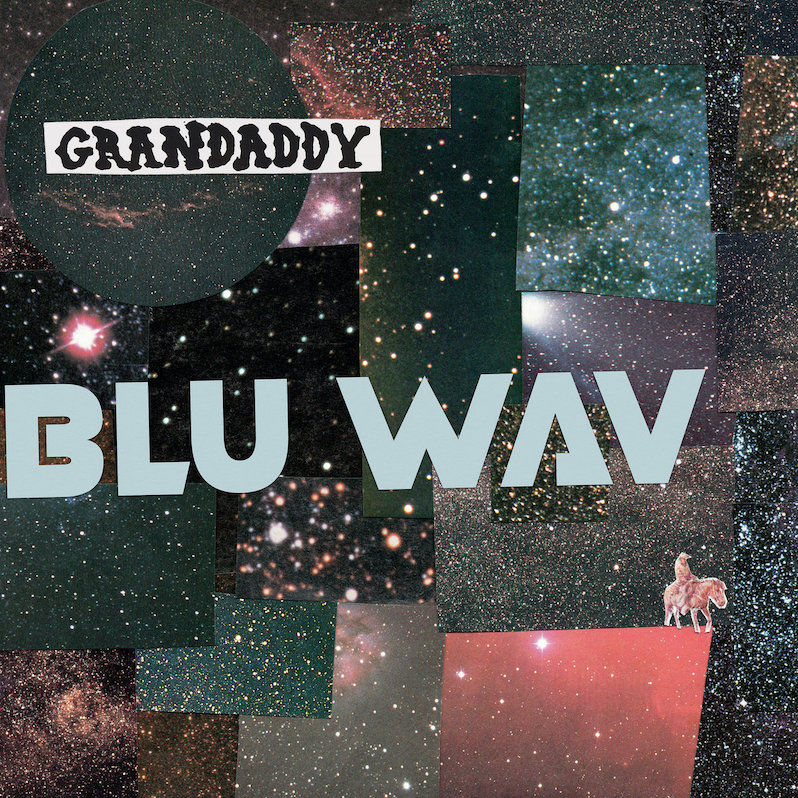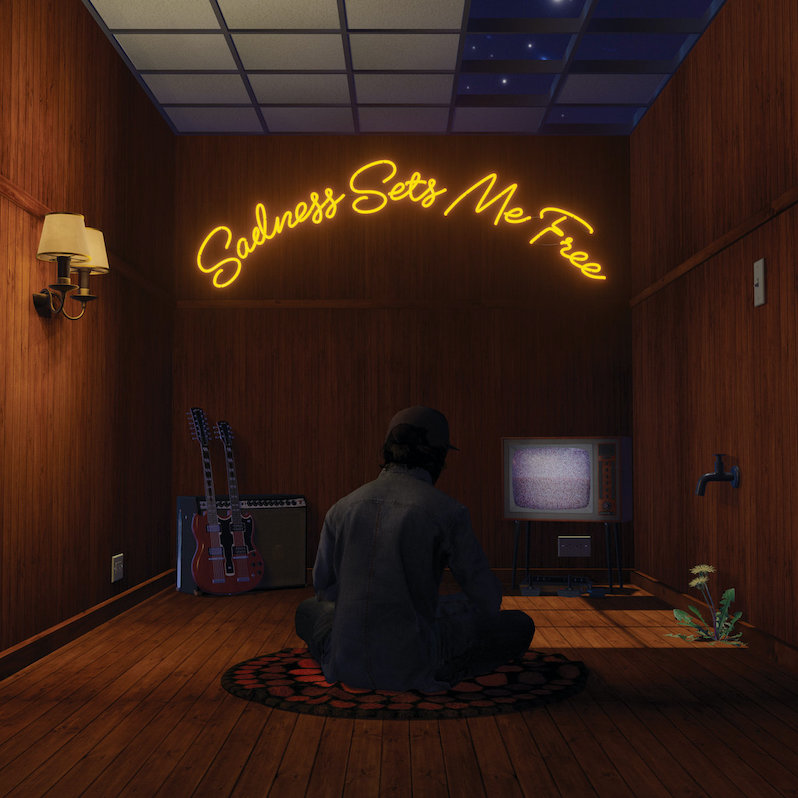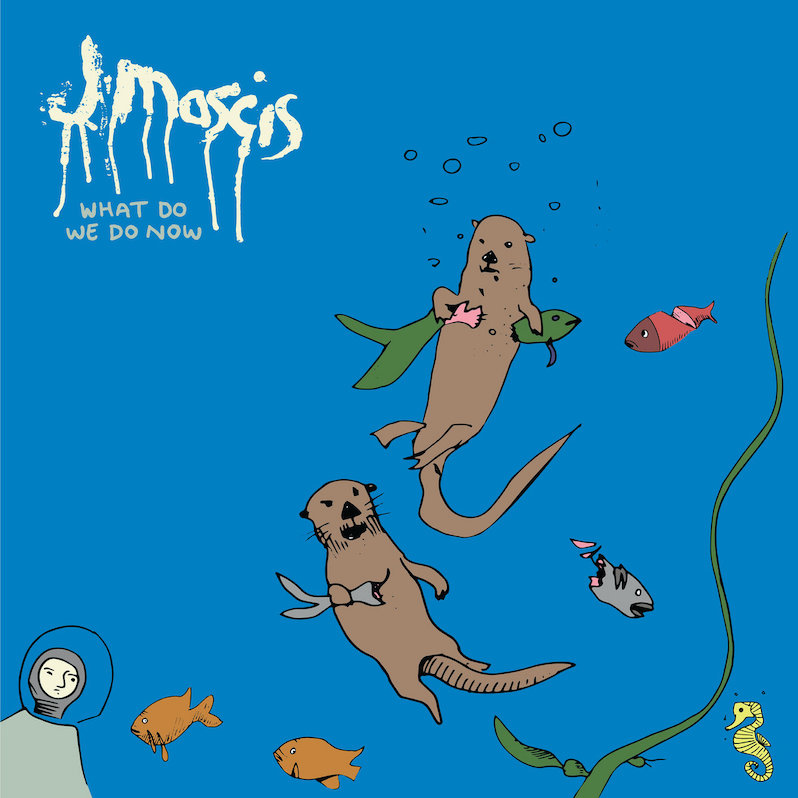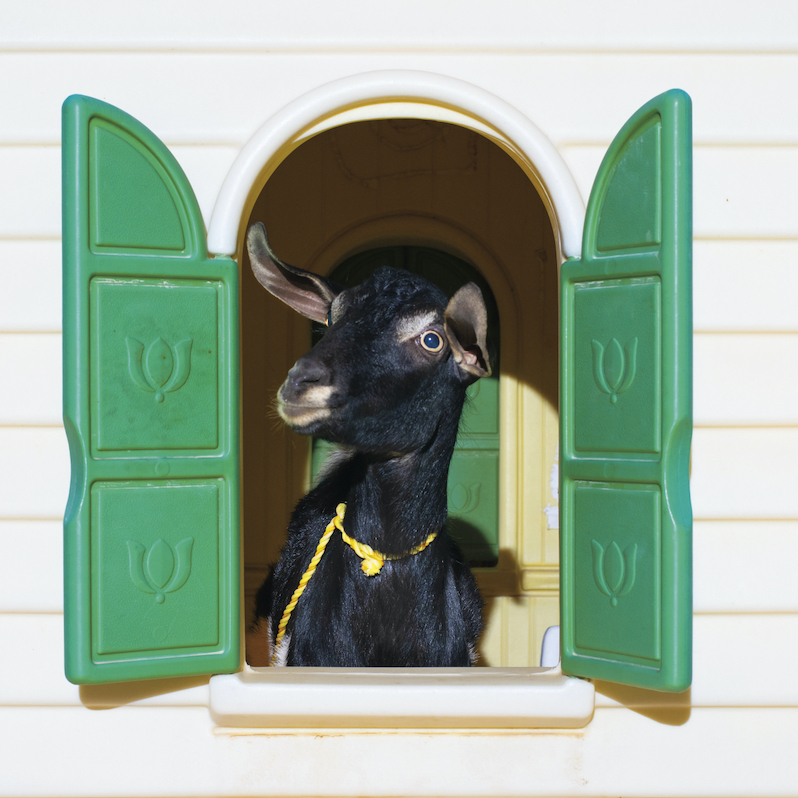Grandaddy : Blu Wav

Despite waves of change, band members’ solo pursuits, and the loss of a dear friend, Grandaddy keep moving forward with Blu Wav, a dreamy but sad collection of musings about life and death set underneath a starry canopy of synth notes and bluegrass twang. The group’s songs are mainly hatched by co-founder Jason Lytle recording in garages and home studios, piecing together analog bits and experimenting with percussion. And though they’re sometimes stylistically and thematically compared with bands such as Flaming Lips and Radiohead, Grandaddy’s sound is still its own, moments of wisdom hiding underneath blips and beeps of electronic notes sandwiched between lonely acoustics, hard guitar fuzz and quiet murmurings strung together in perpetuity. Understated and subtle, Lytle’s songwriting exposes his own vulnerabilities and weaknesses with stunning clarity.
Under the Western Freeway and its widely shared standout “A.M. 180,” an emotional mix of indie rock and analog soul, brought them their earliest brush with fame. While its successor, Sophtware Slump, gave them more critical acclaim, it also contained the seeds of the band’s demise. After 2003’s Sumday, they had reached a breaking point. Fame, the interview circuit and touring took its usual toll, and Lytle dissolved the band several years later, thinking Grandaddy was fundamentally broken. “The only way that I could conceive of fixing these problems was to completely tear down the old way and possibly conceive a new way,” he told The Guardian in 2006.
They did reform in 2012, however, and toured and released Last Place in 2017. That same year, co-founder and bassist Kevin Garcia died unexpectedly, and the loss of Garcia and his collaborative efforts touched the band deeply, and for a long time Lytle felt Grandaddy couldn’t go on again. Eventually Lytle decided that if they were ever going to play again, a new musical direction would be needed. The group had always dabbled lightly in alt-country twang, and soon after breaking up in the early 2000s, Lytle found himself in Montana, among horses and other non-electronic things. The synergy of bluegrass, indie and lo-fi sounds for Blu Wav was serendipitous, Lytle told NPR. While driving out west, a chance song on the radio sparked inspiration: Patti Page’s “The Tennessee Waltz,” the crooner’s rich voice rising and falling as if in a happy trance. But you still feel her loss.
Lytle had never heard the song before, but described it as “slow,” “sweet” and “lilting,” recognizing it as bluegrass. Though he doesn’t need to reinvent the wheel as a musician by now, Lytle’s process has always been to start from scratch, learning new styles from the ground up. Hearing Page’s song added another building block to his rock education and seemed like the right catalyst to bring the band together as they continued to process the loss of Garcia.
By nature, pedal steel guitar embodies an emotional country sound that’s leisurely and expansive in scope. The generous use of the instrument is unmistakable on Blu Wav. There’s also a strong influence of bluegrass and folk music that leans against Grandaddy’s electronic ambiance. Like a hearthside chat, the opening title track gently introduces “Cabin In My Mind,” in which Lytle takes an inward gaze. Play “Tennessee Waltz” followed by “Cabin In My Mind,” and you’ll hear the same slow tempo against which Page sang.
Some of the songs here are just bits and blips and pieces put together. “Let’s Put This Pinto On the Moon” is generated solely by soft harmonic vocal sighs and a space-rock hook. Without the need to map out a specific location in the lyrics, listeners to “On a Train or Bus” can be anywhere and nowhere. “You’re Going To Be Fine and I’m Going to Hell” continues that theme and concerns Lytle’s separation and divorce, describing how his partner left him “in a field” to be with a guy who has a better truck. “It’s been a bad year, but I made it here, with only this last thing to tell,” he repeats. A sweeping chord change midway through changes the song’s trajectory and propels it into the atmosphere.
Though “You’re Going To Be Fine” indicates Lytle is irretrievably damaged, he’s nonetheless pleased to have made it this far, full of hope, resolution, and despair. In this giant world of technological advance dotted with stunted, decayed relationships, Lytle has a way of making the listener feel diminutive yet reverent.
Label: Dangerbird
Year: 2024
Similar Albums:
Grandaddy: Blu Wav
Note: When you buy something through our affiliate links, Treble receives a commission. All albums we cover are chosen by our editors and contributors.




